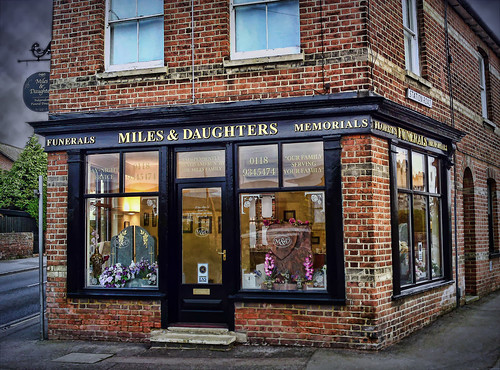Check out these Engineering images:
Union Engineers at Fort Sanders; Nov. 29th 1863.

Image by David C. Foster
Library of Congress...Public Domain. Ft. Sanders, Knoxville, Tenn., showing saliant assaulted by Longstreets forces, Nov. 29th 1863. Telegraph wire was strung between the stumps to trip the attacking conferderate soldiers during the assault. This Battlefield no longer exists.
U. S. Engineers Orville E. Babcock, left, seated on a tree stump, and Orlando Poe, right, standing on a war damaged salient in Fort Sanders, Knoxville, Tennessee.
"Orville Elias Babcock (December 25, 1835 â€" June 2, 1884) was an American Civil War general in the Union Army.
Born in Franklin, Vermont, Babcock graduated third in a class of forty-five from West Point in 1861. During the Civil War, he served as Nathaniel P. Banks\' aide-de-camp until August 1861. He then was assigned to help construct the defenses around Washington D.C.. On November 17, 1861, he was promoted to first lieutenant and assigned to the Left Grand Division as the Chief Engineer. Babcock was promoted to lieutenant colonel on January 1, 1863, and was named the Assistant Inspector General of the VI Corps until February 6, when he was named the Assistant Inspector General and Chief Engineer of the IX Corps. He fought with the IX Corps at the Battle of Vicksburg and the Battle of Blue Springs, and the Battle of Campbell\'s Station.
After fighting in the Knoxville Campaign, he was became the Chief Engineer of the Department of the Ohio on January 23, 1863. On March 29, Babcock was promoted to lieutenant colonel and became the aide-de-camp to General Ulysses S. Grant where he participated in the Battle of the Wilderness, the Battle of Spotsylvania Court House and Battle of Cold Harbor. As Grant\'s aide-de-camp, it fell to Babcock to deliver Grant\'s surrender demand to General Robert E. Lee at Appomattox, Virginia, and to escort Lee to his meeting with Grant at the Appomattox Court House."
en.wikipedia.org/wiki/Orville_E._Babcock"Orlando Metcalfe Poe (March 7, 1832 â€" October 2, 1895) was an United States Army officer and engineer. He was responsible for much of the early lighthouse construction on the Great Lakes.
Poe was born in Navarre, Ohio. He attended the United States Military Academy, graduating sixth in his class in 1856. From then until 1861 he served as assistant topographical engineer on the survey of the northern Great Lakes; during this time he was promoted to First Lieutenant.
At the start of the American Civil War, Poe assisted in organizing the volunteers from Ohio; later, he was made a member of Maj. Gen. George McClellan\'s staff. He assisted by organizing the defense of Washington D.C., and was promoted to colonel that September, when he was placed in charge of the 2nd Michigan Volunteers. He commanded them successfully from Yorktown through the battle of Seven Pines during the Peninsula campaign and was then given field command of a brigade prior to Second Bull Run. He was appointed to brigadier general of volunteers effective November 29, 1862, however the appointment was not confirmed by Congress in the spring of 1863. Poe reverted to his old rank of captain in the regular army and was soon transferred to the western theater, where, in his capacity as chief engineer of the XXIII Corps, he aided in the capture of Knoxville, Tennessee. This city he successfully defended against a siege led by Confederate Lt. Gen. James Longstreet, which culminated in the November 29, 1863, Battle of Fort Sanders. For essentially this action, William T. Sherman selected Poe as his chief engineer in 1864. Poe oversaw the burning of Atlanta, for which action he was honored by Sherman. He continued to serve as chief engineer during Sherman\'s March to the Sea as well as in the war\'s concluding Carolinas Campaign."
en.wikipedia.org/wiki/Orlando_PoeMaintenance mechanic in largest coal press in world, Combustion Engineering Co., Chattanooga, Tenn. (LOC)

Image by The Library of Congress
Palmer, Alfred T.,, photographer.
Maintenance mechanic in largest coal press in world, Combustion Engineering Co., Chattanooga, Tenn.
1942 June
1 transparency : color.
Notes:
Title from FSA or OWI agency caption.
Transfer from U.S. Office of War Information, 1944.
Subjects:
World War, 1939-1945
Boiler industry
Presses
Mechanics (Persons)
United States--Tennessee--Chattanooga
Format: Transparencies--Color
Rights Info: No known restrictions on publication.
Repository: Library of Congress, Prints and Photographs Division, Washington, D.C. 20540 USA,
hdl.loc.gov/loc.pnp/pp.printPart Of: Farm Security Administration - Office of War Information Collection 12002-35 (DLC) 93845501
General information about the FSA/OWI Color Photographs is available at
hdl.loc.gov/loc.pnp/pp.fsacPersistent URL: hdl.loc.gov/loc.pnp/fsac.1a35234Call Number: LC-USW36-17
Atchison, Topeka, and Santa Fe railroad conductor George E. Burton and engineer J.W. Edwards comparing time before pulling out of Corwith railroad yard for Chillicothe, Illinois; Chicago, Ill. (LOC)

Image by The Library of Congress
Delano, Jack,, 1914-, photographer.
Atchison, Topeka, and Santa Fe railroad conductor George E. Burton and engineer J.W. Edwards comparing time before pulling out of Corwith railroad yard for Chillicothe, Illinois; Chicago, Ill.
1943 March
1 transparency : color.
Notes:
Title from FSA or OWI agency caption.
Transfer from U.S. Office of War Information, 1944.
Subjects:
Atchison, Topeka and Santa Fe Railroad
World War, 1939-1945
Railroad shops & yards
Railroad employees
United States--Illinois--Chicago
Format: Transparencies--Color
Rights Info: No known restrictions on publication.
Repository: Library of Congress, Prints and Photographs Division, Washington, D.C. 20540 USA,
hdl.loc.gov/loc.pnp/pp.printPart Of: Farm Security Administration - Office of War Information Collection 12002-3 (DLC) 93845501
General information about the FSA/OWI Color Photographs is available at
hdl.loc.gov/loc.pnp/pp.fsacPersistent URL: hdl.loc.gov/loc.pnp/fsac.1a34701Call Number: LC-USW36-610






 (out of 52 reviews)
(out of 52 reviews)


 (out of 1 reviews)
(out of 1 reviews)





 (out of 5 reviews)
(out of 5 reviews)
 (out of 15 reviews)
(out of 15 reviews)










